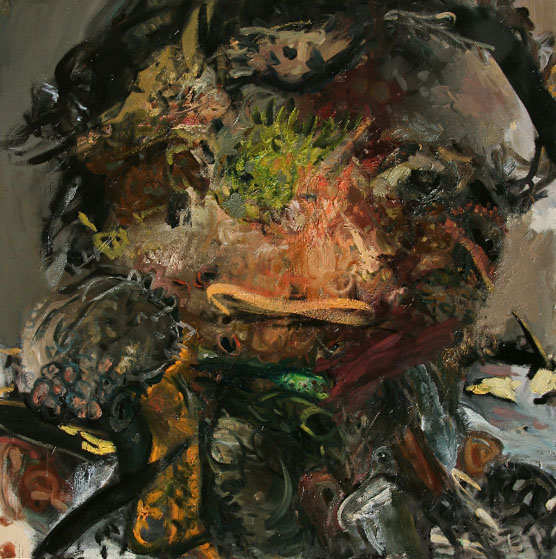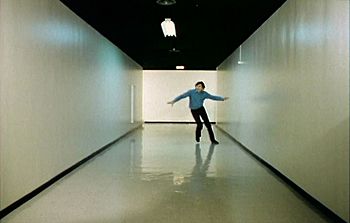Repetition as rule, repetition as defamiliarization,and repetition as deceleration
As promised, back to Shklovsky! In Part 1, we examined his fundamental concepts of device and defamiliarization. In Part 2, we saw how context and history deepen what defamiliarization means. (That’s what led us to take our New Sincerist detour.) Now, in this third part, let’s return to Chapter 2 of Theory of Prose, where Viktor Shklovsky discusses “special rules of plot formation.”
Here it’ll be useful to remember that one of the meanings of rule’s root, regula, is “pattern.” Because Shklovsky is talking less about “rule of law” than he is about the patterns that devices combine to make.
Whenever you write—and it doesn’t matter whether you’re me or Chris Higgs or Mike Kitchell or Kathy Acker or Georges Bataille or whomever—you’re working with conventions. None of us invented these words, nor words, nor their spellings, nor syntax, nor sentences, nor punctuation. We didn’t invent writing. Nor did we invent literary criticism, or essaying, or blogging, or the HTTP protocol that transmitted this post to your computer. We’re all working within overlapping systems that, by virtue of the accident of birth, we find ourselves in. This should cause us no distress because rather than stifle our creativity or inhibit our originality, these systems and their rules provide the very basis for originality and creativity. Without any patterns or conventions we would be left with only noise, in which no innovation whatsoever is perceptible or even possible. It is in fact patterns and conventions that provide the opportunities for disruption and deviation.
In Chapter 2, Shklovsky is trying to understand patterns that authors use when stringing devices together. He isn’t interested in defining every pattern; nor is he interested in critically evaluating them (e.g., “this pattern’s better than that one”). Rather, he wants to examine commonly used ones and demonstrate (the following point is crucial) how even though the patterns are simple and common and predictable, they provide practically infinite opportunity for defamiliarization—and therefore artistry.
In the rest of this post I’ll focus on the simplest of those rules, repetition, with examples taken from Nirvana, Weezer, and Tao Lin.
More excellence from MK, NNT & KS
Mike Kitchell: his big screening log.
Nassim Nicholas Taleb: “Don’t tell my publishers, but as soon as I see a book of mine in the stores, my book is dead for me. My book is only alive when I am still writing it otherwise it does not respond to me anymore (Socrates who hated the written word said the same about the statues of Daedalus: you cannot talk to them). I only like to talk about things (LIKE THIS) I am writing.” and “I was explaining Antifragility to my Italian publisher: a writer is antifragile, a blue-collar worker robust, others fragile. If I beat up an economist, I would spent a few days in an Italian jail, but book sales would shoot up and my message wd be authentic. People would be convinced of the validity of my DeVany-style workout. If a corporate executive did the same his career …” Both of those from his Facebook.
Kickstarter: Howard Glitch, a multimedia jigsaw puzzle.
Stunning new issue: LIES/ISLE

Issue 4 of the now-outdoing-its-own-beauty LIES/ISLE is live and full of local names and weird & warping prose. The contributors: Kimberly Keith, Thomas Kendall, Christof Pryor, Nikolina Nedeljkov, Shome Dasgupta, Merzmench, S.J. Christmass, Arkava Das, Emily Walden, Brenna Murphy, Mitch Patrick, Richard Ferber, Michael Leong. Curated, designed & published by J. Tian and Mike Kitchell, who does astounding work.
Cuatro de Seis de Mayo
1. Flavorwire posts The Ugliest, Most Beautiful Paintings Ever Made

2. Mike Kitchell posts a compelling list of his Top 50 Movies:

3. Penguin announces Central European Classics series.
4. The master Madlib makes a beat
Haut or Not: 3 balls in a sack

Ravi Mangla
Thing Things They Carried: all the crap on the floor because there wasn’t a table. Catch-22: there’s no table and all the books are on the floor. A Farewell to Arms: how about a farewell to crap on the floor? Independence Day: forget about pastoral America, first get your shit off the floor Ravi. The Tipping Point: it don’t matter if anything tips over cuz everything is already on the god damn floor. Introducing Derrida: are you serious Ravi? You actually care about post-structuralist linguistic theory? Dude, here’s a pre-structuralist theory: If Ravi gets his ASS to IKEA and gets himself a fucking table, he can put his lame shit books on it one day and not be such a carpet whore.
Rating: Not

